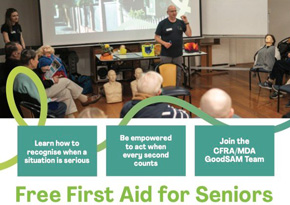From Australia’s Jewish Past: Constance Ellis – the first woman medical graduate in Victoria
Constance was born to Jewish parents on 2 November 1872 in Carlton, Melbourne.

Constance Ellis
She was the sixth child of Louis Ellis, deputy sheriff and later sheriff of Victoria from 1870 to 1895, and his wife Lydia Constance (née Phillips).
Louis was the sheriff of Victoria from 1870 to 1895, having joined the Public Service, from NSW, in 1852 and, in 1858, he was transferred to the Crown Law Department, and he remained there until he retired in 1895. Among many criminals executed during his ‘long term of office as sheriff was ‘’Ned’’ Kelly, the notorious bushranger.
To everyone who knew her, she was known as Connie. In 1886 she completed her secondary school education at Presbyterian Ladies College, completing a brilliant scholastic career in 1890. She enrolled in to the University of Melbourne’s Medical School in 1894 and between 1896 and 1898 attended the Janet Clarke(named after an Australian charity administrator) hostel at Trinity College as a non-resident. She gained honours in every year of the course, and following her final examinations in March 1899, she learned that she had came second in surgery and third in medicine. This entitled her to a residency at the Royal Melbourne Hospital and after a year there, she spent a further two years residency at the Royal Children’s Hospital. She took up general and obstetric practice in Wattletree Road, Malvern.
In March 1903, she obtained her medical degree, becoming the first woman graduate of the University of Melbourne to do so. By this time, she had joined the honorary staff of the Queen Victoria Hospital in 1902, where she organised the pathology department and was honorary pathologist from 1908 until 1919. During her time in this university department, she was appointed demonstrator and lecturer in pathology and deputised for the head of the department – Sir Harry Allen – during his absence.
The Victorian Baby Health Centres’ Association was one of her main interests; she was a council member from its inception and a vice president from 1920 to 1942. As president of the Medical Women’s Society, she acted as its delegate on the Council of the Victorian branch of the British Medical Association and was the first woman doctor in Australia to become a councillor of this organisation. She frequently lectured to women’s groups, and in girls’ schools, on the care of babies and expectant mothers and was closely associated with the College of Domestic Economy – later the Emily McPherson College – an Australian domestic science college for women in Melbourne.
Connie maintained a continuing interest in her old school, and in 1911 she was voted in as president of the Old Collegians’ Association, taking part in 1925 in the school’s jubilee congress, a two-day discussion on social and welfare matters. She was the founder and vice-president in 1912 of the Lyceum Club and its president in 1918-19. In July 1925, she become a member of the first committee of the Melbourne Business and Professional Women’s Club.
She was exceptionally well-read and was an excellent violinist. Her many community activities left her little time for writing, and she made only two small contributions to medical literature.
She died at South Yarra on 10 September 1942 after a lingering illness. She left her large collection of books and pictures to the Janet Clarke Hall and the University Women’s College. Her personality is well described by a long-standing friend – she was the soul of kindness, with great human understanding, a keen sense of fun, and an enormous capacity for making friends’. Ellis Place, in the Canberra suburb of Cook, is named in her honour.
The AJHS acknowledges the following references in the preparation of this story
Wikipedia; Australian Dictionary; 200 Australian Women; Encyclopedia of Science and Innovation; Australian Women’s Registry

The Australian Jewish Historical Society is the keeper of archives from the arrival of the First Fleet in 1788 right up to today. Whether you are searching for an academic resource, an event, a picture or an article, AJHS can help you find that piece of historical material. The AJHS welcomes your contributions to the archives. If you are a descendant of someone of interest with a story to tell, or you have memorabilia which might be of significance for the archives, please make contact via www.ajhs.com.au or its Facebook page.






